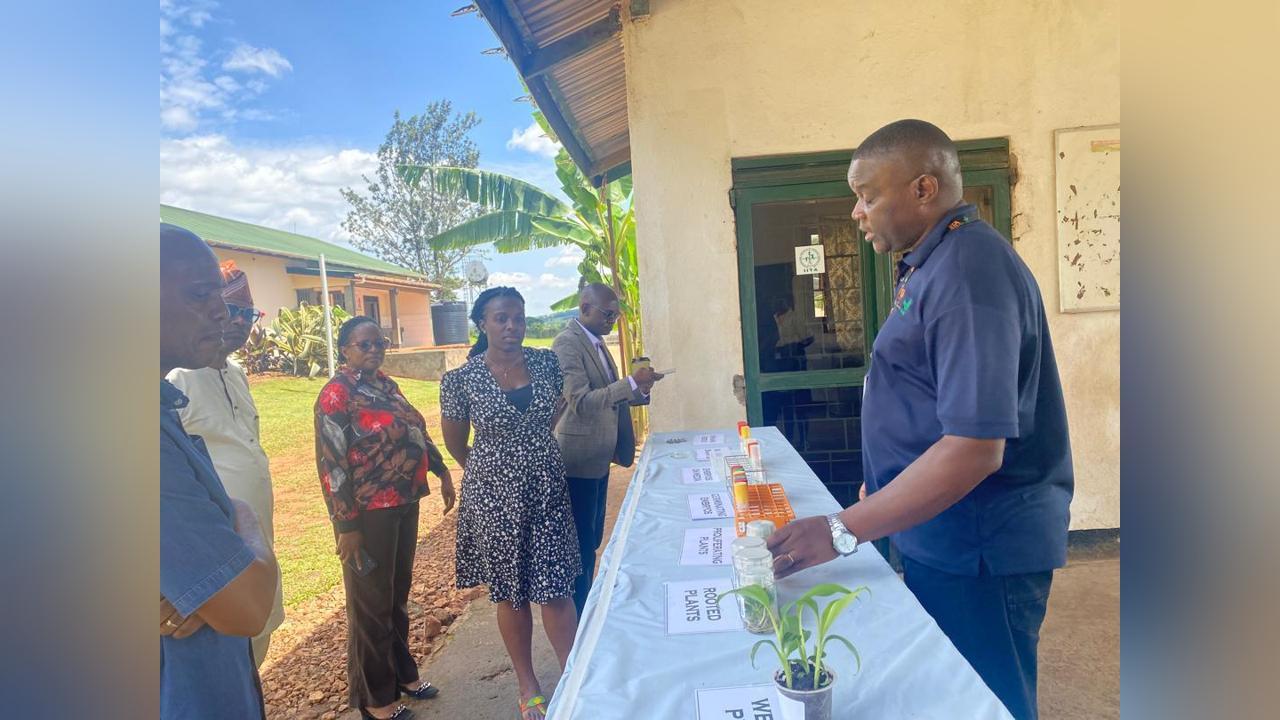Africa-Press – Uganda. In a bid to strengthen food security and public health, agricultural experts have intensified efforts to address aflatoxin contamination, a growing concern that poses serious risks to both human health and market access for Ugandan produce.
Aflatoxins are toxic substances produced by certain molds that grow on crops such as maize and groundnuts, especially under poor post-harvest handling conditions. They not only affect nutrition and food safety but also hinder export opportunities due to strict international safety standards.
According to Dr. George Muhuku, Senior Plant Pathologist for East, Central and Southern Africa at the International Institute of Tropical Agriculture (IITA), the institute has launched targeted interventions to help farmers detect and manage aflatoxin outbreaks in their fields.
“We are working with farmers to implement farm gauges and biological control methods that prevent the spread of aflatoxins right from the field level,” Dr. Muhuku explained.
These innovations, he noted, are part of a broader strategy to enhance food safety systems and protect millions who rely on staples such as maize and cassava for daily sustenance.
With aflatoxins linked to serious health issues, including liver cancer and stunted growth in children, the renewed focus by IITA and agricultural partners is seen as a timely step toward a safer, more resilient food system in Uganda.
The initiative aligns with national and regional efforts to promote climate-smart agriculture, ensure nutrition security, and maintain the country’s competitiveness in global agricultural markets.
The International Institute of Tropical Agriculture (IITA) has significant strides in advancing agricultural research and innovation across East, Central, and Southern Africa.
According to Dr. George Muhuku, a Senior Plant Pathologist at IITA, the institute has invested over $50.9 million over the years in cutting-edge laboratories, mechanisation tools like tractors, and robust research systems aimed at transforming farming on the continent.
The funding has also supported more than 70 PhD students specialising in critical areas such as crop breeding, climate change adaptation, and agricultural systems innovation, creating a new generation of African scientists dedicated to solving the continent’s food security challenges.
Boosting Cassava Breeding and Food Safety
One of IITA’s key focus areas is cassava breeding, which plays a vital role in food security for millions in Africa. Alongside this, the institute is also tackling issues of food safety, particularly aflatoxin contamination a toxic substance that threatens both health and market access.
“We’ve developed products to combat aflatoxins, improving nutrition and ensuring food safety,” Dr. Muhuku said.
“Naro and IITA is also working on farm gauges and biological control methods to help farmers manage their fields more efficiently. Through these innovations, farmers can integrate field management practices with proper harvesting techniques to maximise yields and protect crops” Dr. Yona Baguma, Director General Naro
In terms of seed use and efficiency, Dr. Muhuku noted that farmers typically require about 4 kilograms of seed per acre, with yields ranging from 1.5 acres per kilogram, depending on the crop and management.
A Future Rooted in Research
With ongoing investment and collaboration, IITA’s research initiatives are not only improving yields but also building resilience in the face of climate change and emerging agricultural threats. As the organisation continues to expand its reach, it remains a key player in shaping the future of food systems in Africa.
For More News And Analysis About Uganda Follow Africa-Press






